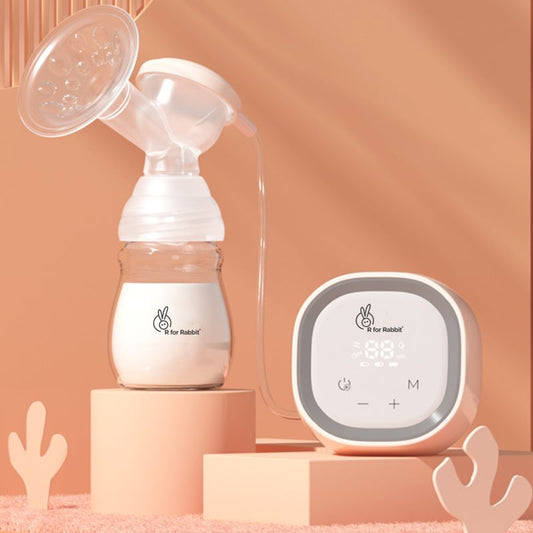10 Key Reasons Why Breastfeeding Is Important For Your Newborn

Breastfeeding is one of the most effective approaches to ensure your baby's overall health. Breast milk is the perfect and ideal food for infants. It is pure and holds vital antibodies that assist in safeguarding your child from illnesses.
Breastmilk offers all the nutrients that newborns require for the early months of life. It balances your infant's nutritional demands in the initial stages of the first year and even later during the second year of your child's growth phase.
In this blog post, we will discuss in depth the key reasons and importance of breastfeeding for infants, how it improves their immunity, minimises allergic risks, leads to cognitive development, and the long-term health benefits of following a proper breastfeeding process.
Significant and Substantial Reasons Why Breastfeeding Is Imperative For Newborns
Let us explore in detail the benefits of breastfeeding for a baby and young mother.
1. Optimal Nutrition for Newborns
Breast milk is the best food with the right and precise amount of nutrients for the infants. Human milk holds 87 percent water, 1 percent protein, 4 percent lipid, and 7 percent carbohydrate. It even contains healthy minerals like calcium, phosphorus, magnesium, potassium, and sodium, along with important vitamins.
The unique composition of breast milk perfectly suits and successfully meets all the nutritional requirements of newborns.
The composition of colostrum, which is the immature milk for the first 3 days of an infant's life, boosts the immune protection of the child. It also reduces respiratory and gastrointestinal infections all through the first weeks of the life of the baby. Colostrum even contains immunity cells like macrophages and lymphocytes.
So, breast milk and colostrum provide essential nutrients and substantial antibodies during the primary days of your newborn.
2. Enhanced Immune Protection
Breastfed babies are less probable to have infections and stomach germs. Breast milk shares antibodies from the mother with her newborn baby. These antibodies assist children in building a strong immune system and safeguard them from diverse illnesses.
Along with antibodies, breast milk provides proteins, fats, sugars, and white blood cells that help in fighting infections in several ways. As soon as the breast milk passes into the baby's system, infection-fighting components start working with their intestine even prior to nutrients being engrossed into the blood flow.
3. Reduce Risks of Allergies
As per research findings, breastfeeding for more than four months had a lesser risk of eczema and allergies at four years of age. It also reduces risks of allergic rhinitis, wheezing and lower respiratory infections. Breastfeeding by allergen-sensitised mothers assists in preventing allergic diarrhoea.
Breastfeeding outlines the healthy gut microbiota in the initial stages of your baby's life, by contact of the neonate to the milk microbiota and through maternal milk aspects that affect metabolisms like oligosaccharides, secretory IgA, and anti-microbial facets, which further reduces the likelihood of allergic reactions.
4. Bonding and Emotional Connection
The generation of prolactin and oxytocin while breastfeeding is indirectly connected with lower levels of maternal stress, and thus, breastfeeding enhances a strong emotional bond between mother and newborn.
Furthermore, early termination of breastfeeding or not breastfeeding at all has been related to an amplified risk of maternal postpartum despair and depression.
Additionally, breastfeeding-induced oxytocin release is allied with raised prolactin levels, lowered stress hormones and reduction in anxiety, which suggests that oxytocin encourages physiological and psychological adaptations in mothers.
5. Cognitive Development
The fruitful experience of breastfeeding backs the strong development of a child's brain. As per research and studies, breastfeeding improves cognitive development and leads to higher IQ scores in children.
The presence of essential and vital fatty acids in breast milk is crucial for overall brain development. Higher levels of fatty acids in breast milk impact cognitive development.
Furthermore, the balanced fatty acid composition in human milk regulates intestinal development and safeguards it from intestinal injuries.
Also Read: How To Increase Breast Milk Naturally at Home?
6. Reduce the Probable Risk of Sudden Infant Death Syndrome (SIDS)
Sudden infant death syndrome (SIDS) is the mysterious death of an apparently healthy newborn baby, typically while asleep. An extensive study showcases that breastfeeding lessens the risks of sudden infant death syndrome (SIDS).
In the last 20 years, promotional campaigns to lessen and reduce the risks of sudden infant death syndrome have been extremely fruitful. We at R for Rabbit suggest mothers breastfeed through 6 months of age as it reduces the risks and effects of sudden infant death syndrome.
7. Offer Long-Term Health Benefits
Breastfed babies have a lesser risk of asthma, obesity, type 1 diabetes, ear infections and stomach bugs. Breast milk decreases mortality among young children who are malnourished.
Breastfeeding has long-term health benefits for mothers, too. Breastfeeding can diminish the mother's risk of high blood pressure, ovarian and breast cancer, and diseases like type 2 diabetes.
The long-term health benefits of breastfeeding even include a reduction in the risk of obesity and chronic illnesses in mothers, setting the foundation for lifelong health.
8. Involves Convenience and Cost-Effectiveness
Electing whether to breastfeed or formula-feed the baby is one of the major decisions for new parents. Health specialists believe breast milk is the finest nutritional selection for newborns.
The convenience of breastfeeding eliminates the requirements for formula preparation and sterilisation. Breastfeeding also leads to cost savings when matched to formula feeding, helping families in the longer run.
Mothers can breastfeed almost anywhere and anytime their baby is starving. You are not required to make formula prior to feeding, be anxious about clean water, or carry it with you when you are travelling.
9. Leads to Enhanced Neurodevelopment
Human milk is a rich source of immune, growth, and development factors that assist in educating the newborn's innate immune system during the critically vital period of your child's overall development.
A recent study in preterm infants discovered that human milk feeding in low birth weight newborn babies, while allied with amplified extrauterine growth restraint, had an enhanced impact on neurodevelopmental results at two years of age as measured by the Bayley Scales of newborns.
10. Reduce Risks of Childhood Infections
As per recent studies, breastfed babies are less likely to develop common childhood infections like respiratory infections, ear infections, gastrointestinal illnesses, and common allergies.
As we discussed above, the importance of breastfeeding to the child is that the foremost milk that comes out of breasts, called colostrum, is highly rich in vital antibodies.
As mothers continue to breastfeed, the baby will take in more antibodies, which assists them fight diseases and infections now and even in the future.
Also Read: Breast Milk vs Powdered Milk: Which is Better for Baby?

Moving Forward
We explored how breastfeeding is useful to both newborns and mothers. Breastfeeding is the finest experience a new mother can have. It is better to try instead of being repentant or feeling sorry in the later stages. There are many hospitals and centres that help you with breastfeeding classes.
Breastfeeding time is enormously imperative as it builds a strong bond between mother and baby. You will also perceive that the mother's milk will aid with the sleep of the baby, and the baby gets less irritable.
Check the R for Rabbit website for nursing and pumping essentials. The R for Rabbit breastfeeding pumps have the best and most innovative designs. The pump bottle can be fed to the child with the nipple and cap attached, making it fitting to store and easily feed your child










